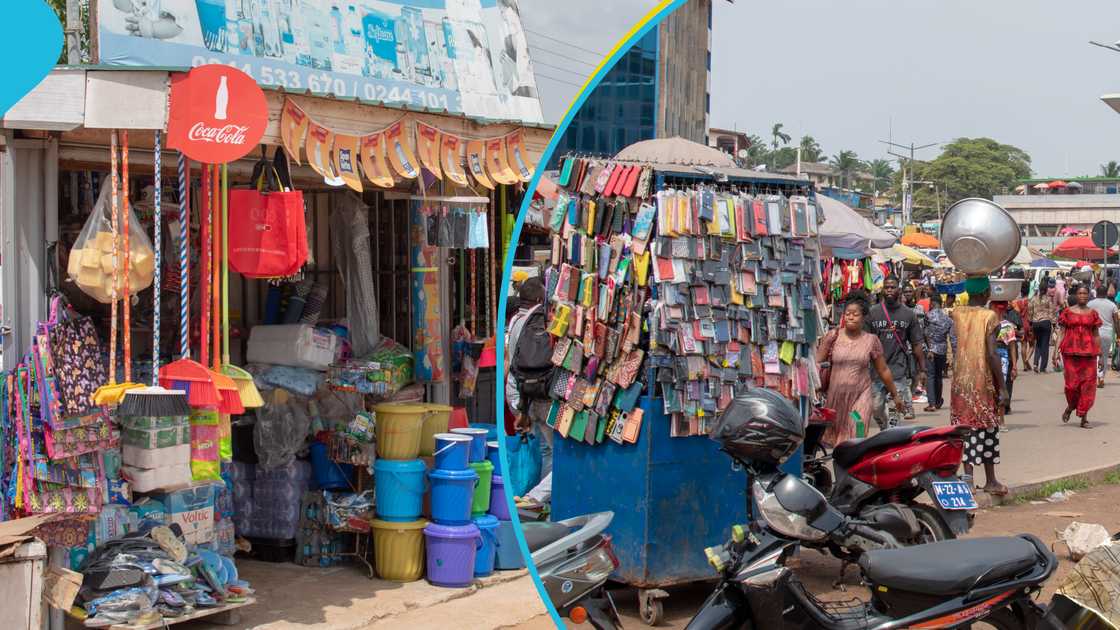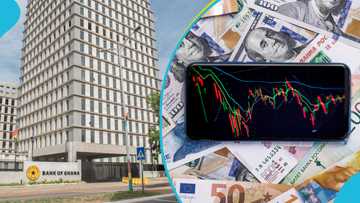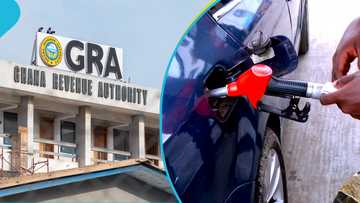Mahama Administration Implements New Taxes and Tax Reforms From July 1
YEN.com.gh outlines the new taxes and tax reforms implemented by the Mahama administration starting from July 1, 2025.
Don't miss out! Get your daily dose of sports news straight to your phone. Join YEN's Sports News channel on WhatsApp now!
July 1, 2025, has seen a number of tax reforms taking effect as part of the John Mahama administration's plan to improve revenue mobilisation.
Starting with the new tax system, the Ghana Revenue Authority has rolled out what it calls the Modified Taxation Scheme, which aims to improve tax collection from informal sector workers.

Source: Getty Images
Per the Business and Financial Times, the Modified Taxation Scheme is designed to make it easier for small business owners and traders who are not already registered with the Ghana Revenue Authority to pay taxes.
Informal sector workers who earn less than GH¢ 20,000 annually will now pay a fixed quarterly tax ranging between GH¢ 25, GH¢ 35, and GH¢ 45. Those who earn between GH¢ 20,000 and GH¢ 500,000 in a year will pay 3% of their total sales as tax.
Dr. Alex Kombat, the Ghana Revenue Authority's Assistant Commissioner for Research and Policy, stressed that the goal of the tax reform covering small businesses was fairness.
“We want to make tax payment simple for small businesses. This new method is different from the old way of taxing and is meant to help more people take part.”
What is the Modified Taxation Scheme?
Per the GBC, the Modified Taxation Scheme is introducing a flexible framework targeting micro, small and medium businesses across the country in line with the Income Tax Act, 2015 (Act 896).
The Ghana Revenue Authority has been stressing that the scheme is, however, not an additional tax but a simplified method of calculating personal income tax for eligible traders and entrepreneurs.
Ghanaian residents earning income solely from business activities within the country fall under this tax bracket.
By way of tax categories, there will be a Presumptive Tax Based on Instalments with fixed quarterly payments of up to GH¢45 for businesses with an annual turnover below GH¢20,000.
There is also a Presumptive Tax Based on Turnover at a flat 3% rate for businesses earning between GH¢20,000 and GH¢500,000 annually.
In addition, there is a Modified Cash Basis for businesses exceeding GH¢20,000, applying graduated rates with allowable deductions.
The payment options for this tax include mobile money, USSD codes (*222#), and bank deposits.

Source: Getty Images
Other Ghana Revenue Authority tax interventions
New tax on immovable properties
All estate developers are to charge VAT on the Rental of Immovable Property and the Supply of Immovable Property by Estate Developers in line with the Value Added Tax (VAT) Amendment Act, 2023 (Act 1107).
Specifically, state developers must charge a 5% VAT on immovable property by an estate developer calculated on the taxable supply and immovable property for rental purposes. A 1% COVID-19 levy is also applicable on the supply of immovable property.
There are exemptions for residential dwellings and agricultural properties.
VAT on non-life insurance
Insurance companies are to charge a 15% Value Added Tax on all insurance premiums covered under the Value Added Tax (Amendment) Act, 2023 (Act 1107).
Insurance premiums covered for Value Added Tax purposes include fire, marine, liability, property, indemnity, engineering, travel, burglary, personal accident and workmen’s compensation insurance. Motor insurances are notably exempted from the new tax.
The Ghana Revenue Authority expects companies to update their accounting and invoicing systems to incorporate Value Added Tax, train staff on the application and reporting, sensitise clients about the changes and ensure the timely registration for Value Added Tax, if not already registered.
Postponed implementation of new tax on fuel
The Ghana Revenue Authority postponed the implementation of the GH¢1 increase per litre of the Energy Sector Levy, the most controversial revenue generation measure under the Mahama administration so far.
The postponement followed a directive from Minister of Finance Cassiel Ato Forson after consultations with key stakeholders. There were concerns that the levy could erode economic stability, which has seen consistent drops in fuel prices.

Read also
Bank of Ghana flags 10 unlicensed money transfer platforms, serves serious warning to banks
The government said the tax increase is needed to support the clearing of the $3.1 billion energy sector debt. The International Monetary Fund is backing the GH¢1 increase per litre in taxes on fuel products.
Proofreading by Bruce Douglas, copy editor at YEN.com.gh.
Source: YEN.com.gh




